Today, we are releasing two new reports, both available from our website. These are our first public reports built using the data gathered using our media monitor and you can probably expect more like these two in the future.
The first report, which is free (you can make a donation when you get it on Gumroad, if you do, we won’t mind), is a look at the overall landscape of those media that are dedicated to video games.
The second report, which is not free, is a deeper and more specific look at video games media and their coverage of VR, focusing on the key platforms (Oculus Rift, HTC Vive and PlayStation VR), the mist VR-friendly media, and the key VR games that were covered.
Rather than describing them, let me share some of the findings of the reports.
Video Games Media Landscape
One of the things the report looks specifically at is the coverage received by the major gaming platforms over a year.
There are two things we considered when looking at the relative media presence of those platforms.
First, the percentage of websites that mentioned the platform at all.
There are two very clear leaders, with both Xbox and PlayStation having 95+% of the games websites mentioning them. The main consoles are so ubiquitous that it is surprising that they aren’t at 100%, to be honest. But you have to account for PC-only media as well, and they are unlikely to have much coverage of the consoles.
More surprising is how Steam, which is not a platform that has a very pro-active communication strategy, still has 90% of the websites mentioning it. This is ahead of the Nintendo platforms (Wii, Wii U, 3DS) standing at 86%.
Then, beyond the websites, we also looked at the volume of articles for each platform:
If you are familiar to the blog, you won’t be surprised to see PlayStation ahead here. They have a very strong media presence, and they are constantly ahead of the other platforms in terms of media coverage. In terms of scale, that’s still 3 times the total number of articles mentioning the Nintendo brands, and almost 30% more than the volume of articles mentioning the Xbox brand.
Steam being behind matches with what we were referring to earlier, and the lack of a concerted communication strategy on the platform from Valve. Much of the coverage is inherited from studios and publishers launching their game on the platform, and without consideration for the brand presence.
One objective of the report is to provide some reference points in regards to how different the media from the different countries are a different from one another. We are able to put together this table to show what we called the “media affinity” for certain platforms based on the language of a website.
One very interesting pattern is how French, Spanish and Italian media, all based in Mediterranean countries, have a stronger affinity to Nintendo platforms compared to websites in German or English.
This is not to be interpreted, for instance, French websites having more coverage on the Nintendo consoles than on the Xbox ones. But in proportion, French media are writing more articles on Nintendo than the German media. I think this is an important consideration – as this helps understand the different sensibilities of the different cultures when it comes to games platforms.
Here is another very telling example. Below are the top 10 games in terms of media coverage in English and in German, for the calendar year 2015, set at the same scale.
We discussed in the past how The Witcher 3 was the most mentioned game of 2015, across all the languages we track. But in English it only came second, behind Fallout 4. In German, The Witcher 3 is the clear winner with a third more coverage than the second best game… Star Wars Battlefront!
Another interesting takeaway is the very strong media coverage in German for World of Warcraft. The game doesn’t make it to the top 10 in any other language. World of Warcraft had more articles in German than Metal Gear Solid 5 had in English.
We made the landscape report free to anyone, you just need to enter your email and ask for a download link. We wanted this report to serve as a foundation for other reports we are writing, and making it free allows us to use it as a reference points across different things we are building.
Virtual Reality in games media
Our second report is more in-depth, is not free, and is looking into the media coverage of one of this year’s strongest trends, Virtual Reality. This report is also covering a full 12 months of coverage, from May 2015 to April 2016.
One of our findings was done by looking at the ratio of websites that covered VR in some way, compared to the ones that didn’t cover the topic at all.
The criteria being very generous (any mention of VR or a VR related device), we were expecting very high percentages. We found two things we didn’t expect:
- 100% of the English websites we track mentioned VR in a way or another during the 12 months period. It is very unusual to have such a perfect score, especially considering the tool has it own flaws, and it would tend more towards missing mentions rather than finding false positives. VR as a topic for video games English media is there and is very strong.
- More than 25% of both French and German media didn’t cover VR in any way during the period. That’s significantly behind the average observed, especially considering the very generous criteria we used there.
Looking at the volume of content shows another different trend.
VR as a topic is incredibly weak among the French video games media. They saw fewer articles than in any other languages. While the percentage of German media covering media is the lowest, the ones that did cover VR wrote more than 6,000 articles referring to it. This is still a lot lower than the total number of games articles in English and highlights the fact that, at the moment, VR as a topic for video games media is a higher priority for English media than for the others studied.
We put together a formula called “VR Media Impact” to help us identify the most enthusiastic and influential websites about VR. We took into account the number of articles about VR and the popularity of the websites (based on its Alexa ranking):
There is a clear majority of English websites (and lack of French media), but tellingly, the top 2 media are dedicated to VR. For them to appear here is not only based on the fact they have written a lot on the topic, but also speaks to the fact that they managed to build an audience and have a strong enough following.
The report has more detailed ranking for each language if you are involved in the VR scene and would like to see more.
Lastly, I wanted to show how the coverage for the key 3 VR HMDs (Head Mounted Devices) has evolved over those 12 months.
All 3 platforms are trending towards more coverage overall. However, while Oculus is leading the way most months, it is slowly losing its lead. Playstation VR secured more coverage in March 2016, where it announced its release date and pricing, showing promise for when it releases towards the end of the year.
It is also very interesting to note the slow but steady growth of the HTC Vive media coverage. The lead in brand awareness that Oculus built over the years probably helped in getting good coverage for the important announcement, but the HTC Vive is now catching up to it, with the media at least.

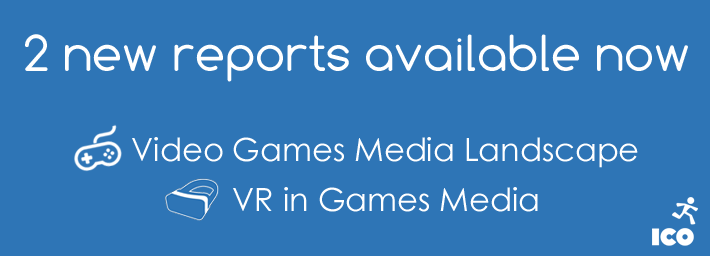
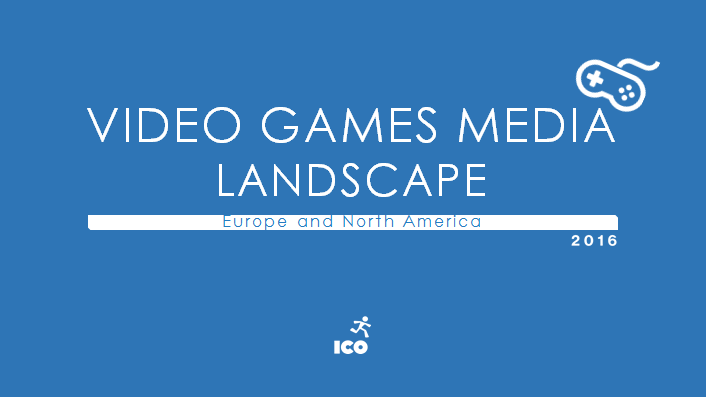
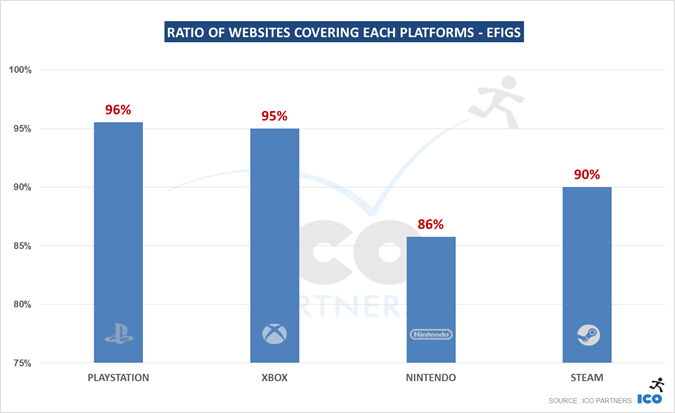
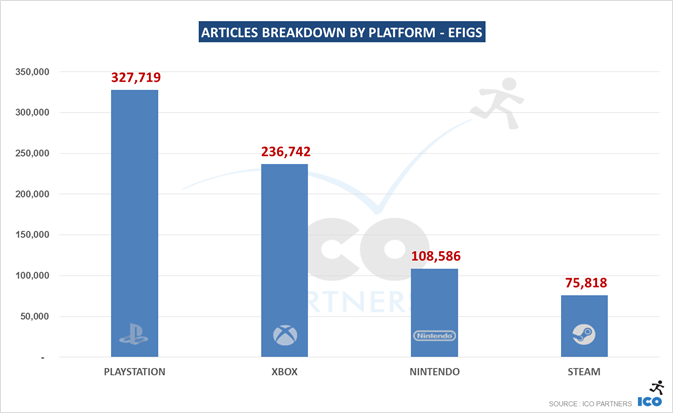
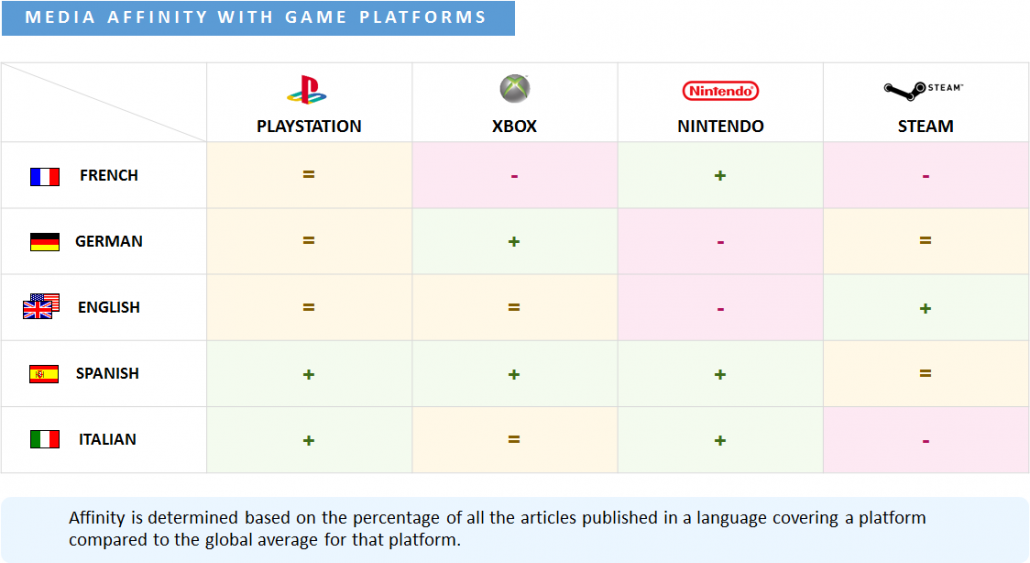
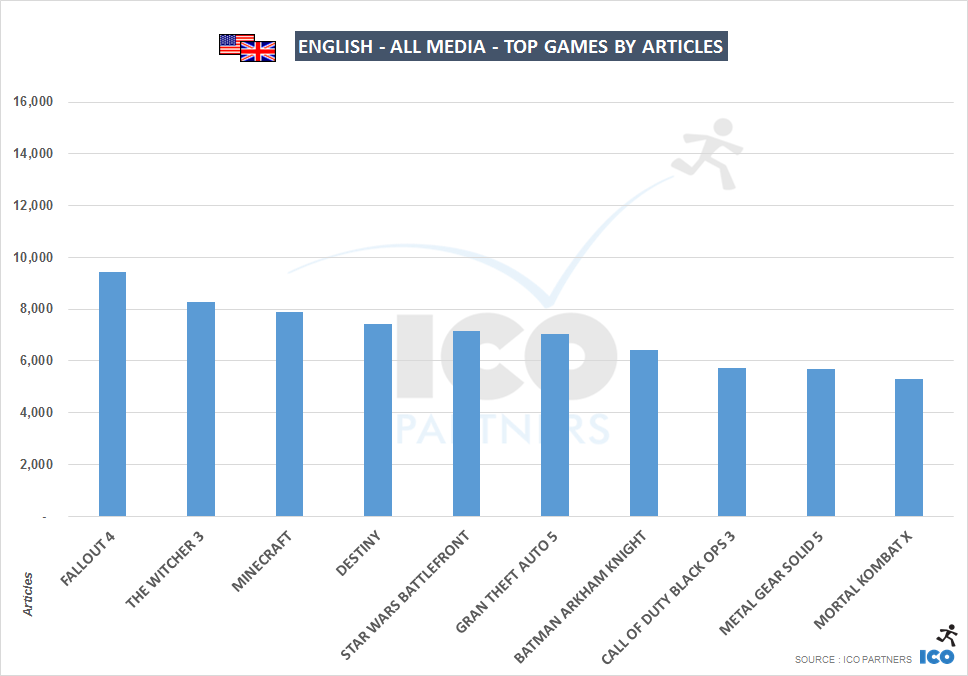
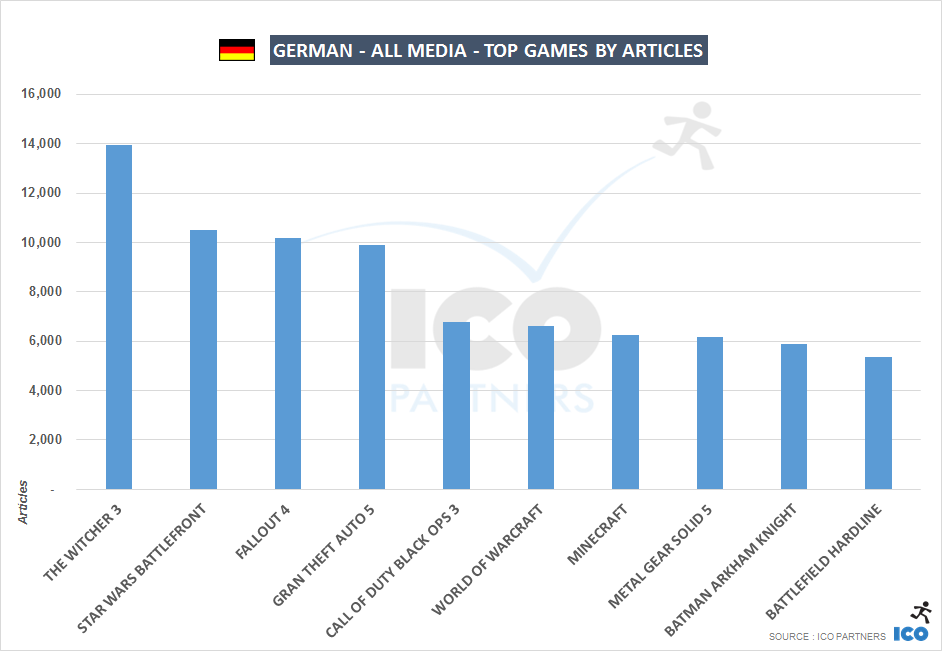
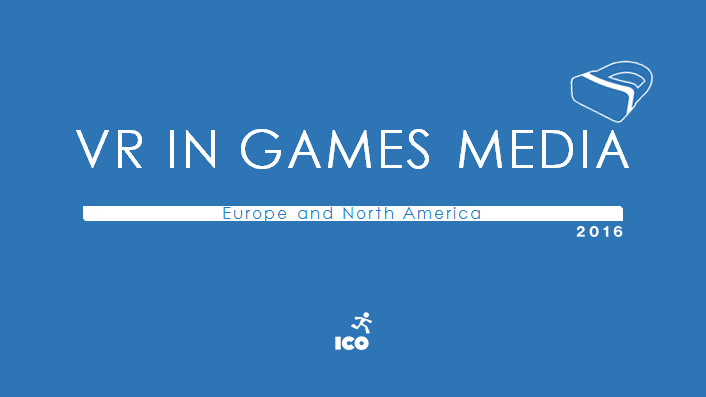
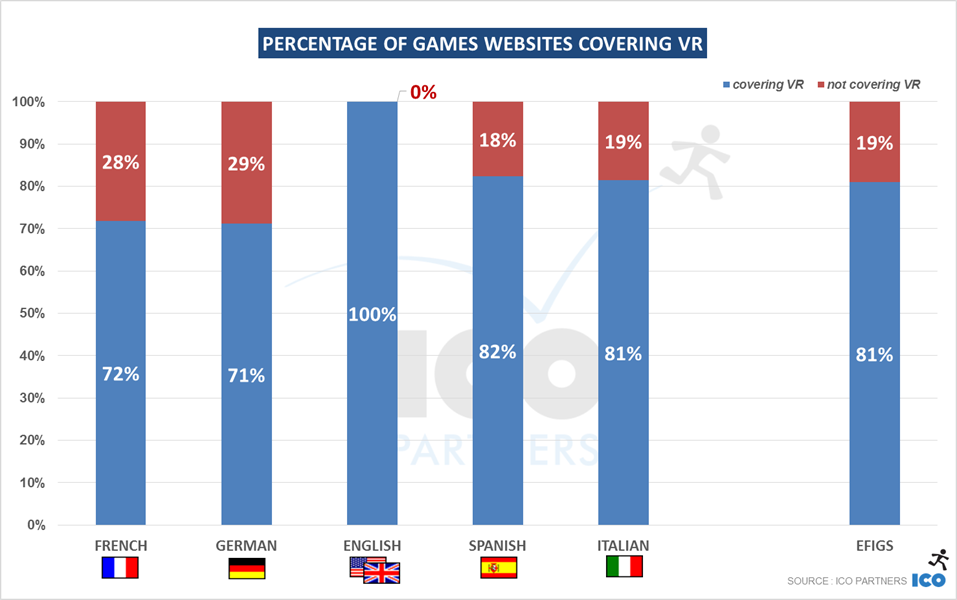
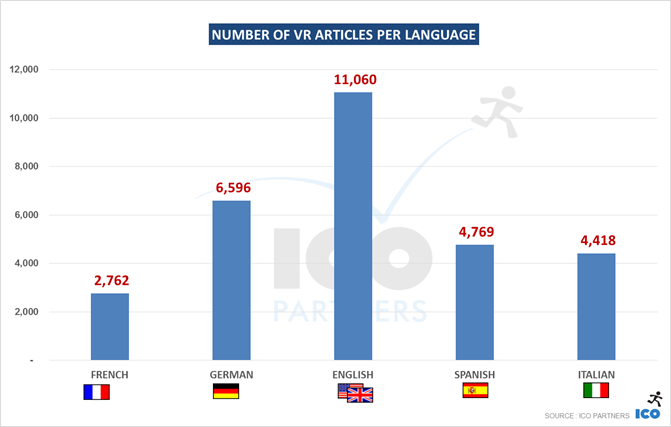
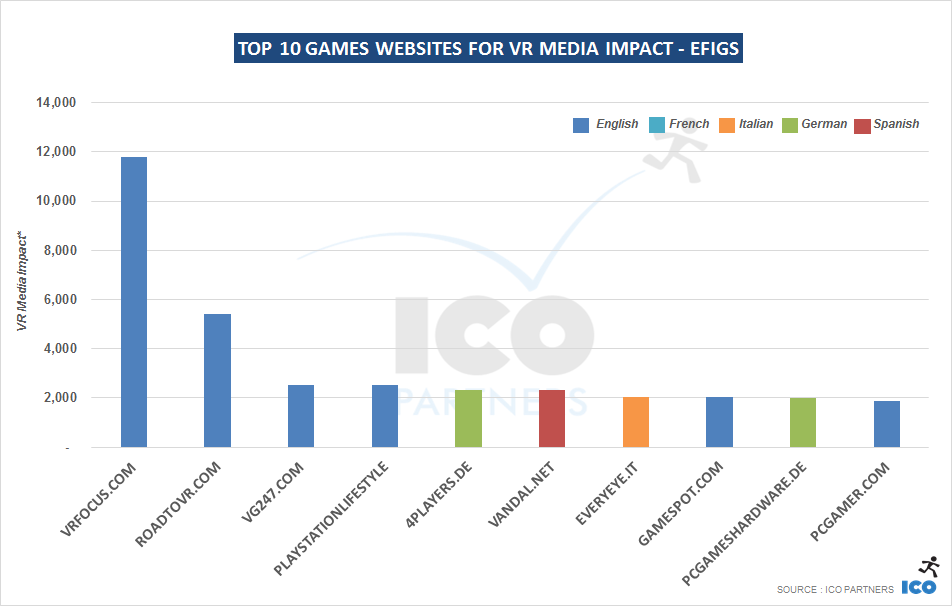
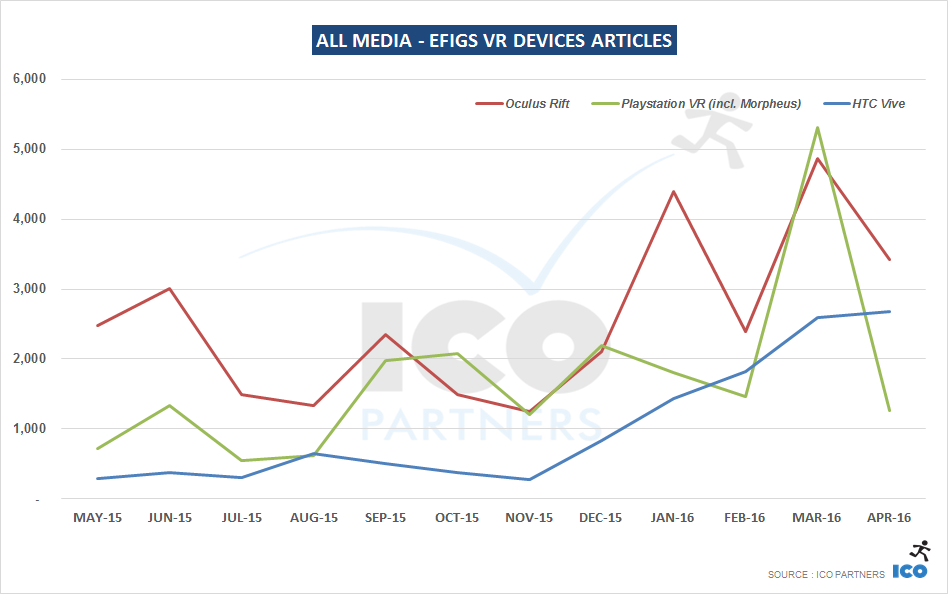
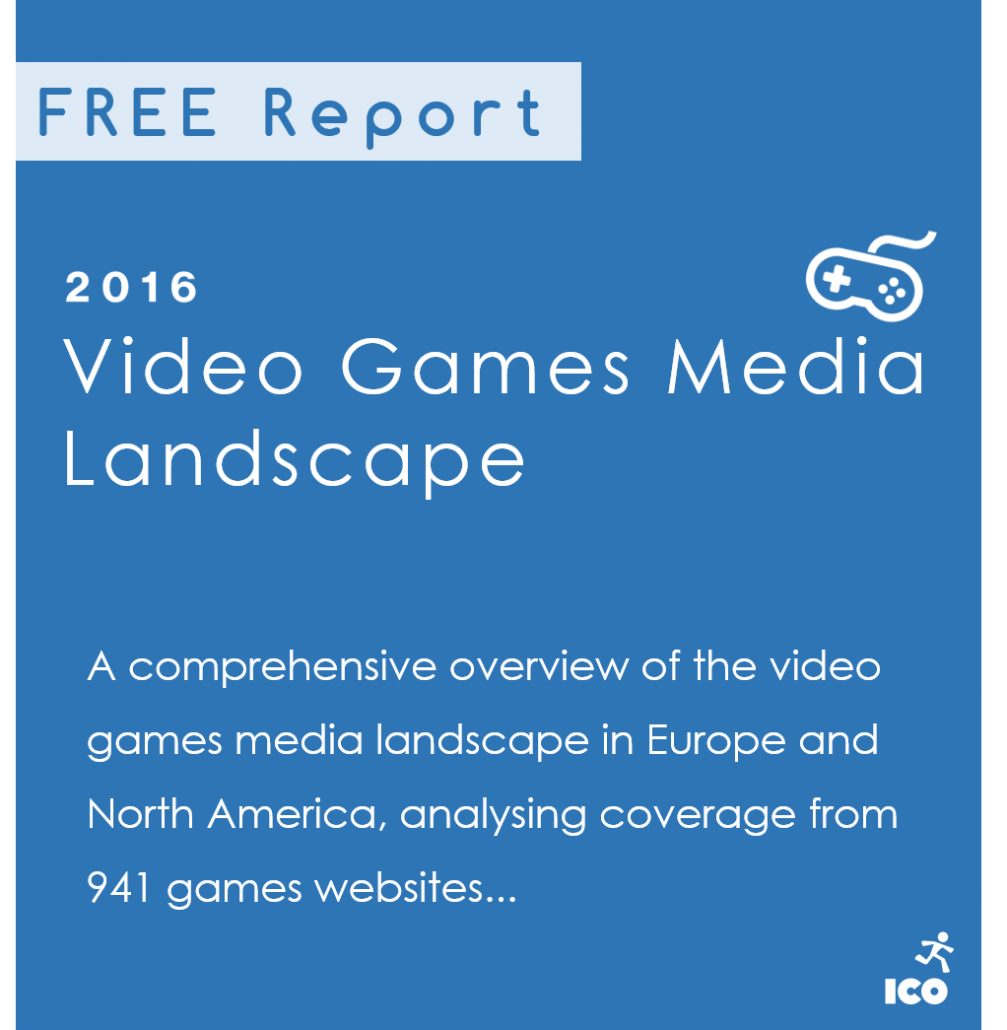
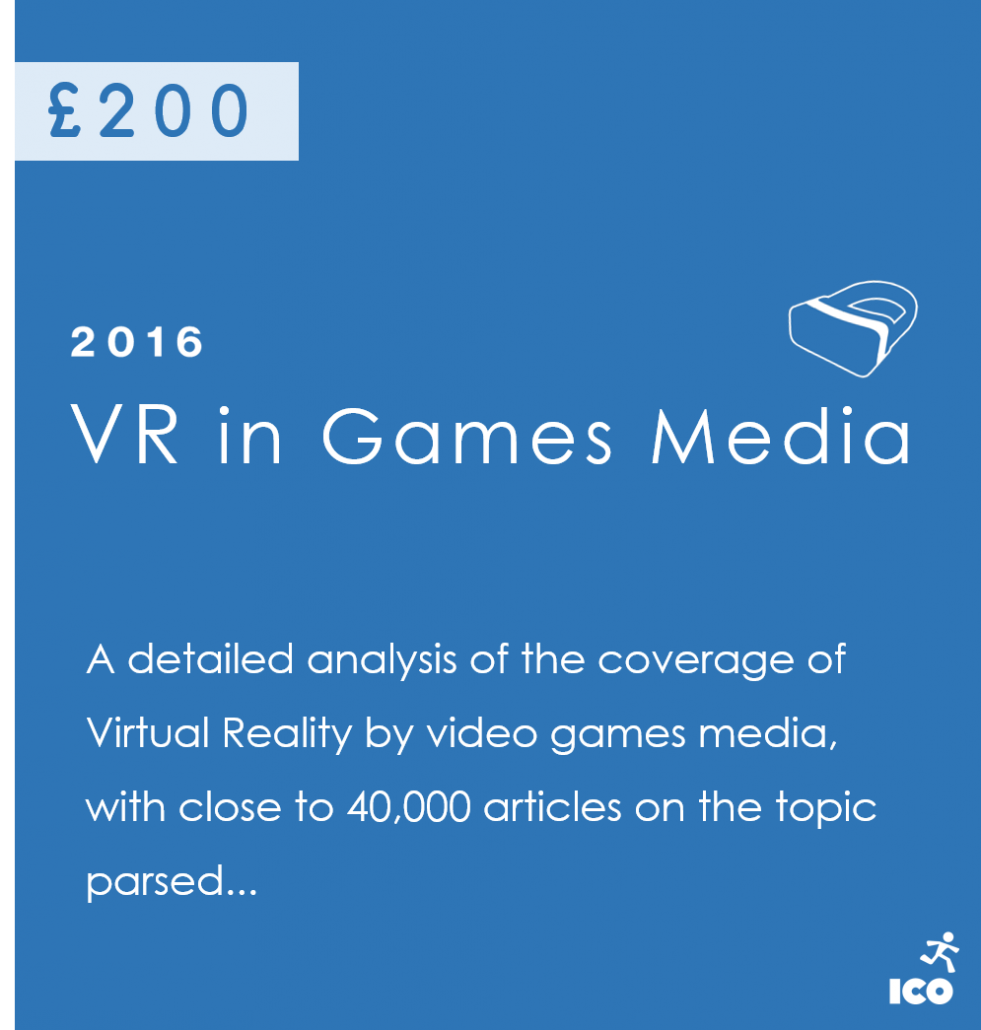


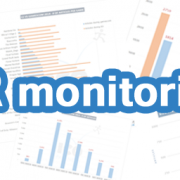
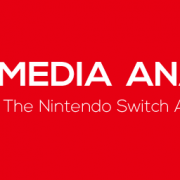

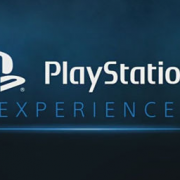


Trackbacks & Pingbacks
[…] up on the two reports that we released last year, we are releasing today another report looking at how video games media cover a specific topic. […]
[…] announcement in a bigger proportion than the other languages (and which makes sense considering the findings from the report on the different media landscapes) and Italian media where the increase was smaller than the other languages (and contrary to the […]
[…] the launch and to see how well it has performed compared to the other two. If you have read our blog post on the VR in media report, the result shouldn’t be very surprising, […]
Leave a Reply
Want to join the discussion?Feel free to contribute!